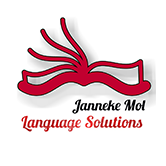Do I need a translator if I speak both languages?

If you speak both languages, hiring a translator might feel unnecessary. This article explains when your own skills are enough, and when it pays to bring in a professional.
You write well. You speak both languages. So why would you pay someone to translate something you could technically do yourself?
It is a fair question, and one I get a lot — especially from people who are fluent, internationally educated, or write in English every day. The answer is not about ability. It is about outcome.
Being bilingual is not the same as being a translator
Fluency helps. Deep knowledge of both languages is a must. But translation is not just about knowing words — it is about shaping meaning.
Professional translators are trained to:
- Spot and avoid false friends or near misses
- Handle idioms, tone, rhythm, and cultural nuance
- Adapt messages for the target audience without losing the original intent
- Choose clarity over direct equivalence
- Avoid unconscious interference from the source language
A native-level speaker might write an email just fine. A translator can turn that email into something polished, persuasive, and pitch-perfect — for the reader in that language.
When your bilingual skills might be enough
There are moments where doing it yourself is fine. For example:
- You are writing a personal message, not something for publication
- You are summarising content, not quoting it
- You just need to get the gist of a text, not produce a final version
- You are translating for internal use, not for clients or the public
If you are confident in your writing skills and the stakes are low, you may not need help. But if the text represents your brand, crosses borders, or carries legal, reputational, or financial weight, it is worth getting a professional.
What a professional translator adds
When I translate something for a client, I am not just making it “correct.” I am making it sound intentional, fluent, and ready to use. That includes:
- Careful research and rewriting
- Thoughtful tone-matching
- Idiomatic phrasing and clarity
- Final proofreading and formatting
The goal is to make the translated text feel like it was written from scratch — by you, in your own voice, in a different language.
Not sure? I can help you decide
If you are wondering whether you need a translator, you probably care about quality. And that is a good sign.
Send me the text or a sample. I will look at it honestly and tell you whether I think professional translation is worth it, or whether your version does the job just fine.
This article was written by Janneke Susanne Mol, copywriter, translator, and transcriber at Janneke Mol Language Solutions. With a background in journalism and English language and literature, I help businesses communicate clearly, confidently, and in their own voice — in both Dutch and English.
Got questions about language, copy, or translation? Feel free to get in touch. No pressure, just thoughtful answers.



